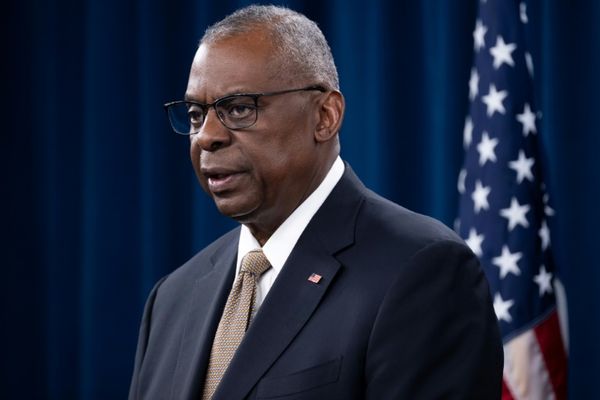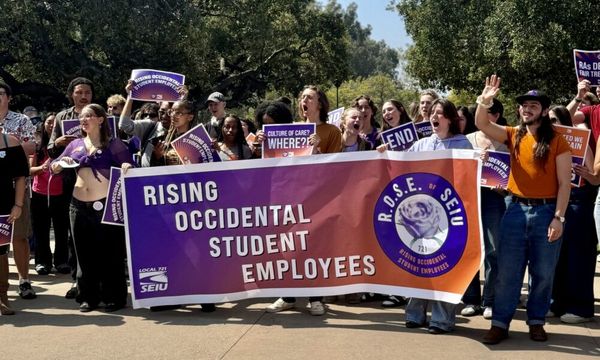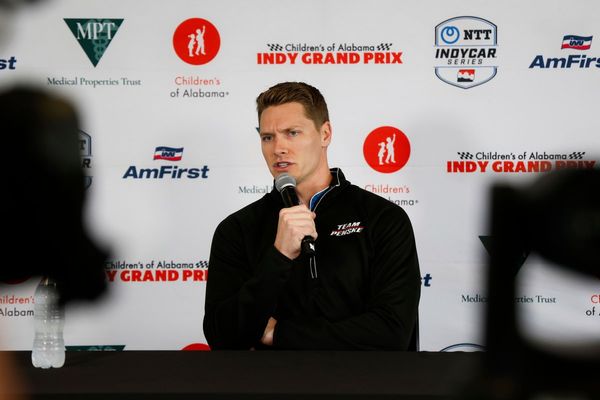
Donald Trump is not known as a man of his word, but he’s worked hard to follow through on his promise of retribution against Republicans who voted to impeach him in 2021. Of the 10 GOP House members who voted for impeachment, four retired rather than face likely losses, two lost primaries, and a third, Liz Cheney, is almost certain to lose hers later this month.
Two of the others, Daniel Newhouse and Jaime Herrera Beutler, are representatives of Washington State. Their primaries were on August 2, but votes are still being counted. Herrera Beutler conceded her race yesterday, but Newhouse managed something that none of the other pro-impeachment Republicans has: He triumphed in his primary, likely clinching another term in D.C., because his very Republican district is unlikely to send a Democrat. This gives him a good chance at being the only Republican House member to vote for impeachment and manage to win election to the 118th Congress.
So what can Newhouse’s win and Herrera Beutler’s loss teach? Here’s a clip-and-save guide for other Republicans looking to survive without allying themselves with the former president.
1. Don’t Make It About Trump
One advantage for Newhouse was that he was arguably the most anonymous of the gang of 10 from the start: Anthony Gonzalez of Ohio (retiring) is a former NFL player; Adam Kinzinger of Illinois (retiring) had already become known as a chronic Trump critic; Liz Cheney is a Cheney. Newhouse, by contrast, doesn’t have much profile at all outside central Washington. A hop farmer and former state legislator, Newhouse’s vibe is cool grandpa, not political brawler. He has slicked-back white hair, a carefully trimmed beard, and rimless glasses. When I went to his campaign-kickoff event in Yakima, Washington, in May, he arrived in a Jeep adorned with American-flag decals and a No Shoes Nation sticker.
Some of the pro-impeachment Republicans, such as Kinzinger, Cheney, and Peter Meijer of Michigan (who lost his primary last week), made opposing Trump a part of their political identity, knowing it might end their careers. Herrera Beutler didn’t do that, but she didn’t shy away from her vote, either. After the January 6 insurrection, she said that House Minority Leader Kevin McCarthy had begged Trump to intervene but that the president had refused. Her claims have since been vindicated, but they also attracted Trump’s ire and made her a target for him. Another Republican, Nancy Mace of South Carolina, didn’t vote for impeachment but castigated Trump; she managed to survive a primary against a Trump-backed opponent, but only by doing everything she could to tie herself back to Trump.
By contrast, Newhouse made little fuss about his vote then and hasn’t said much about it since. During his speech at the kickoff luncheon, Newhouse didn’t mention Trump a single time, positively or negatively—though everyone I talked with at the event brought it up unprompted, praising Newhouse’s stand on principle while acknowledging that it had made his political life difficult. Newhouse even managed to enlist Trumpists to support his campaign, luring Representative Jim Banks of Indiana, a rising Republican star and a close ally of Trump’s, to speak at the luncheon. (When I tried to speak with Banks about this curious pairing, he refused to be interviewed and quickly hustled away.)
2. Keep It Local
The old axiom that all politics is local may not be dead, but it’s dying. As the University of Washington political scientist Jacob Grumbach explains in his new book, Laboratories Against Democracy, national politics has begun to seep into state and local institutions. At one time, elected officials could easily be at odds with national leaders of the party on certain issues while remaining in good standing, but that is harder and harder to do.
Newhouse, however, was able to do it. The Fourth District is “the most solidly Republican district in the state,” Kevin Pirch, a political-science professor at Eastern Washington University, told me. “It’s conservative, but more of an agribusiness conservatism than a social conservatism.” At the May luncheon, Newhouse talked a lot about local issues—he defended dams that central-Washington agriculture depends on for irrigation and called for immigration reform, because farmers in his district need labor—but what struck me even more was how much of his speech was devoted to shouting out local grandees in the crowd, from the lowest elected offices up to former state-GOP chairs. In a rural district with distinctive politics, it’s still possible to keep it local.
3. Run in a State With Favorable Election Laws
Newhouse also benefited from Washington’s unusual primary system. Rather than having separate Republican and Democratic primaries, as most states do, Washington has a single primary. All the candidates run together, and the top two vote-getters move on to the general election, even if they are in the same party. (In practice, the system usually produces a Democrat and a Republican, as it did in the Fourth, where Newhouse will face Democrat Doug White in November.) Instead of parties picking a standard-bearer, candidates declare a “preference” on the ballot. That means the state parties are weaker, which tends to produce larger fields of candidates and allow incumbents such as Newhouse to run against the field instead of taking on a single candidate.
“One argument put forth when we went to the system was this was going to encourage more moderate candidates,” Pirch said. “There’s no strong incentive to become an extremist in the primary—to be the most Republican Republican or the most Democratic Democrat.”
Not coincidentally, Meijer lost to John Gibbs in a traditional primary in Michigan, but David Valadao of California came second in his state’s nonpartisan primary, punching a ticket to the general election. (Valadao faces a dauntingly blue district in November, so Democrats may yet finish what Trump couldn’t and force him out.)
4. Get Lucky in Your Opponents
In a tough election environment, it’s good to have either weak opponents or lots of them so that they split the vote. Newhouse got both. He and White, the Democrat, each ended up with barely a quarter of the primary vote, while six other Republicans split the remainder. The third-place candidate was Republican Loren Culp, who won Trump’s endorsement and took 21 percent of the vote. Notwithstanding the former president’s backing, Culp was a weak candidate. In contrast to Newhouse’s deep local roots, Culp had relocated to the district just to run against him. Prior to that, he was trounced as the Republican gubernatorial nominee in 2020 (he refused to concede despite losing by 13.5 percentage points), and before that, he was the sole police officer in a tiny Washington town. Newhouse had ample fundraising and outside help, while Culp had to run on a shoestring.
Herrera Beutler was not so lucky, drawing fewer and stronger rivals—particularly fellow Republican Joe Kent, who placed second in the primary and will become the favorite against Democrat Marie Gluesenkamp Perez. (Democrats have made several unsuccessful attempts to flip the seat in recent years.) Culp comes off as a crackpot, whereas Kent, another Trump endorsee, is a handsome, square-jawed veteran—which helps distract from his own crackpot views about stolen elections and deep-state provocateurs.
The problem with this playbook is that it isn’t much of a playbook at all. Nearly everything had to go right for Newhouse to win—he had to be the perfect local candidate, in the right district, with the right existing election laws, and with good luck in his rivals. But even with all of that, his success may prove hard to replicate as American politics continues to polarize. Washington is a consistently blue state, though not by wide margins. That has created an unusual state Republican Party—moderate in outlook, agricultural in alignment, and unified largely by opposition to the dense, liberal areas around Puget Sound and Seattle that make the state a Democratic stronghold.
Distinctive state parties used to be a typical feature of American politics. “One would think that a Republican in Washington State should look different from a Republican in the South or Midwest,” Grumbach told me. “But both parties are becoming more homogeneous. The way ordinary members and voters understand politics is as a national battle with the other team.”
Newhouse’s victory shows that the old way isn’t dead—but he’s one of the very few remaining who can pull it off.







